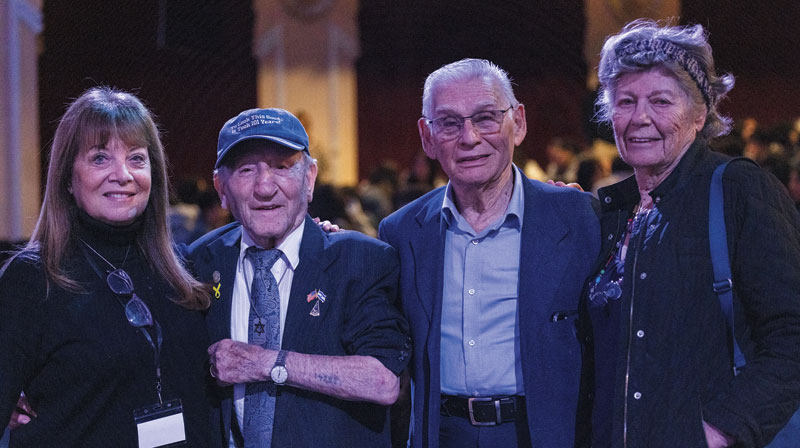What rights would a yarmulke-wearing child have in a public school that decides to prohibit hats on campus? What about a group of Jewish inmates who want to light Chanukah candles when a regulation clearly bans fire of any kind inside a prison? Or a synagogue or church that wishes to build or expand in a restricted area?
These are among the potential and real-life cases that the federal Religious Freedom Restoration Act of 1993 (RFRA) was intended to address. The premise of RFRA was that even though “free exercise of religion” was a constitutionally guaranteed right in this country, laws that were presumably “neutral” toward religion could pose as much of a burden as those intended to hinder religious practice. Therefore, RFRA said, a “compelling interest” test should be applied that would weigh the government’s interest in imposing a law, against the burden that law would place, on free exercise of religion.
Since the United States Supreme Court overturned RFRA in June, a number of states, including California, have launched campaigns to pass similar laws to ensure stringent protection of religion at the state level. A broad coalition of religious and civil-liberties organizations led by American Jewish Congress recently urged a group of California legislators to pass a statute providing “real and enforceable, yet balanced, protection for religious liberty.”
In testimony before a special hearing of the State Assembly Judiciary Committee, Marc Stern, co-director of the AJ Congress Commission on Law and Social Action, told legislators that the danger to religious liberty today doesn’t come from “outright bans on a particular faith” and other clearly unconstitutional actions. Rather, he said, it derives from actions of what he termed “the well-meaning state.”
“The complex society in which we live tolerates, and often requires, regulation to a degree unprecedented in American history,” Stern said. “Oftentimes, the regulations are cast in a form which interferes with the practice of one faith or another. Most of these conflicts emerge because no one foresaw the clash between the regulations and religious practice.”
Stern, one of the principle drafters of the federal RFRA legislation, singled out zoning laws as common examples of how “bias often sneaks in — and sometimes dominates — hearings before zoning officials who exercise vast discretionary authority.”
For Jews, careful scrutiny of laws that affect religion are of particular importance, Stern said. “One of the reasons Jews have been able to flourish is that they’re not put at a disadvantage because of the law,” he said.
Eugene Volokh, acting professor of law at UCLA and an opponent of passing state RFRA, said such legislation would unfairly discriminate in favor of religious individuals or groups, giving them an advantage over those with deeply held moral beliefs not rooted in a particular religion. He also felt it would hand too much power to judges and courts, instead of legislators and voters. “It’s important to protect both the secular and the religious and look at each case on its merits,” said Volokh, a Russian-born Jew who teaches constitutional law. “This overall massive law that leaves decisions in the hands of judges is not a good idea.”
Erwin Chemerinsky, a Sydney M. Irmas professor of law and political science at USC Law School, said establishing a RFRA statute in California “is an essential protection of religious freedom” in the wake of the Supreme Court’s decision to overturn the federal version. Since the California Supreme Court has tended in the past to follow the lead of the U.S. Supreme Court, without federal RFRA to turn to, state law becomes even more uncertain, Chemerinsky said.
At least five Jewish groups attended the hearing in support of a state RFRA statute. They included: the Jewish Community Relations Committee of the Los Angeles Jewish Federation, the Anti-Defamation League, American Jewish Committee, the Jewish Public Affairs Committee and AJ Congress. Also supporting the passage of state RFRA were the American Civil Liberties Union of Southern and Northern California, People for the American Way Action Fund, San Fernando Valley Interfaith Council, Americans United for Separation of Church and State, as well as groups representing Muslims, Buddhists, Lutherans, Unitarians and Seventh Day Adventists. Further hearings on the subject are scheduled in the next few months.





















 More news and opinions than at a Shabbat dinner, right in your inbox.
More news and opinions than at a Shabbat dinner, right in your inbox.